LDS Church could be a $1 trillion denomination by 2044, report suggests
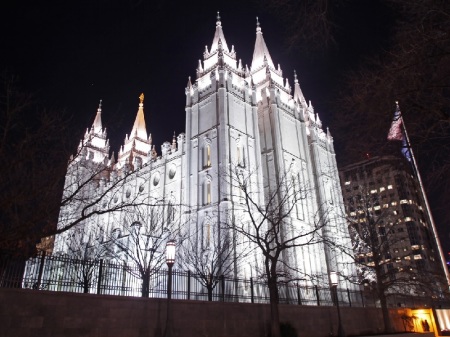
With an estimated wealth of $236 billion in 2022, The Church of Jesus Christ of Latter-day Saints could potentially cover all of its current expenses "forever" with returns from current investments without collecting any additional tithes from congregants. It could also become a $1 trillion denomination as early as 2044, a new report from The Widow's Mite contends.
The report, prepared anonymously by "current and former Church members whose professional and educational backgrounds include business, finance, law, investment management, economics, journalism and history," was created through an analysis of "publicly available sources."
"The material is made available as a way to advance research and increase understanding regarding the financial state of the Church of Jesus Christ of Latter-Day Saints," the researchers note.
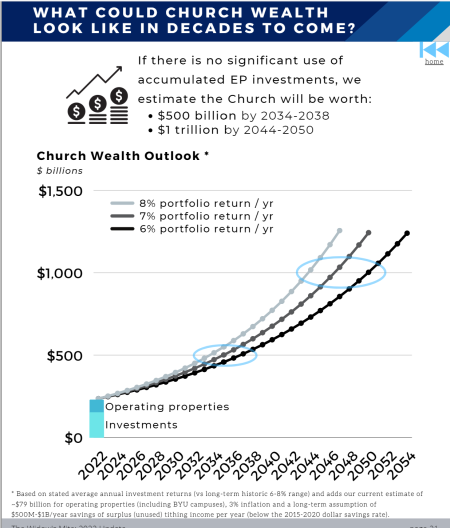
Christopher Moore, a spokesperson for The Church of Jesus Christ of Latter-day Saints, characterized the report as speculation and declined to respond on the record to a series of questions asked by The Christian Post on Monday.
He told The Salt Lake Tribune, which first cited the report, that no comment could be given because the "main themes" came from "anonymous accounts."
The report comes months after the church and its affiliated investment manager, Ensign Peak Advisors, Inc., was fined a collective $5 million by the U.S. Securities and Exchange Commission for using shell companies to hide the size of their investment portfolio, which grew to a reported $32 billion in 2018.
In 2019, a report on a whistleblower complaint to the Internal Revenue Service alleged that the Church of Jesus Christ of Latter-day Saints stockpiled some $100 billion of tithes and donations meant for charity.
Officials at the organization pushed back, saying the "vast majority" of the funds are spent immediately for church business and related humanitarian work.
Church officials also acknowledged that they have managed to save and invest the organization's finances well to build a "prudent reserve for the future."
"Over many years, a portion is methodically safeguarded through wise financial management and the building of a prudent reserve for the future. This is a sound doctrinal and financial principle taught by the Savior in the Parable of the Talents and lived by the Church and its members. All Church funds exist for no other reason than to support the Church's divinely appointed mission," the church said. "Claims being currently circulated are based on a narrow perspective and limited information. The Church complies with all applicable law governing our donations, investments, taxes, and reserves. We continue to welcome the opportunity to work with officials to address questions they may have."
In estimates of the church's wealth highlighted by The Widow's Mite, researchers suggest that the church could cover all of their current expenditures "forever" with approximately $1 billion left over annually to reinvest or give charitable aid with just a 4.25% annual return on their approximately $157 billion "endowment" being managed by Ensign Peak "without asking members for 'one dollar of donation' ever again."
Still, when asked last year if church members struggling with abject poverty could be exempted from paying tithes to the church, Elder David A. Bednar, said during an event at the National Press Club in Washington that even though the church "doesn't need their money" it would be better for them to "obey God's commandments.
"The pathway out of poverty is keeping the commandments of God, including tithing," Bednar said. "The Church doesn't need their money, but those people need the blessing that come from obeying God's commandments."
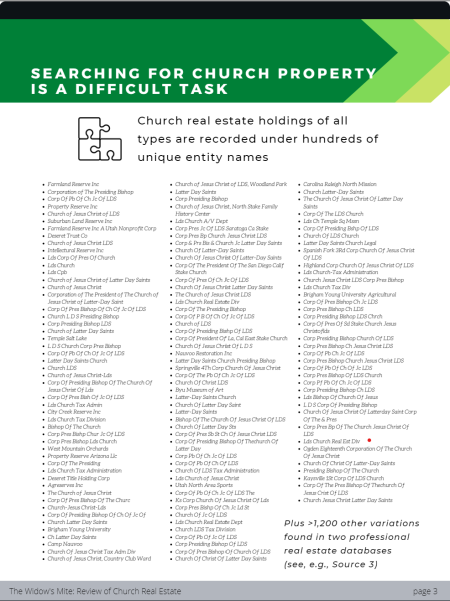
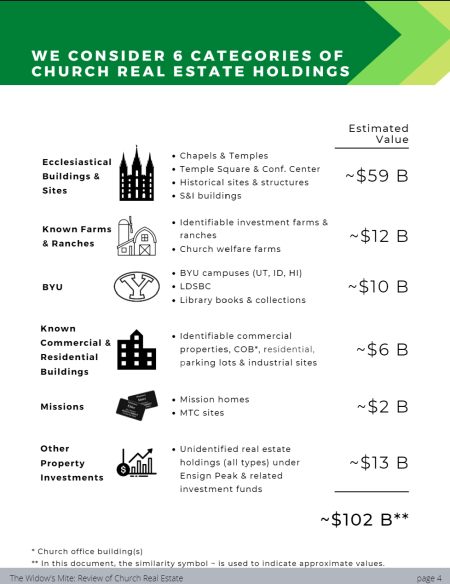
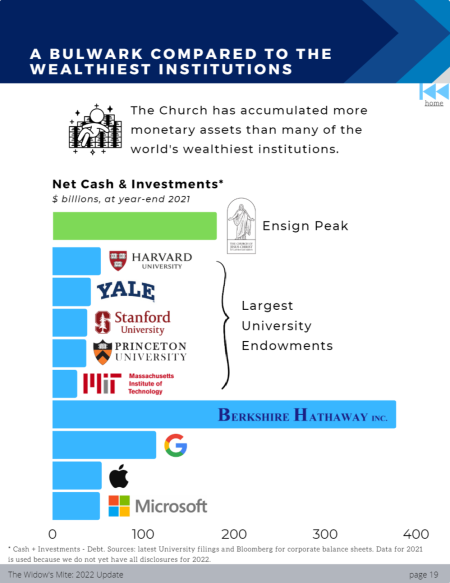
The Widow's Mite researchers estimate that The Church of Jesus Christ of Latter-day Saints has more monetary assets than many of the world's wealthiest institutions, including Harvard University, Yale, Stanford University, Princeton University and the Massachusetts Institute of Technology.
They couldn't, however, find much evidence of what the Church is doing with its invested savings.
"In 2009 and 2010, Ensign Peak distributed emergency funds to shore up Church investments in valuable for-profit businesses. Profits from Church investments have long paid for General Authority living allowances. Otherwise, there's no stated use or plan for the money, other than accumulating more money," the researchers explained.
The report also states that the Church of Jesus Christ of Latter-day Saints had a real estate portfolio worth approximately $102 billion at the end of 2021.
"The Church does not disclose all of its real estate holdings," the researchers said. "We know that the Church owns tens of thousands of properties, recorded under many unique entity names."
The report highlights that in recent years, as the church's finances have come under scrutiny, there has been an increase in charitable aid, but its investments are growing significantly faster than its giving.
"Church investments may be growing faster than the Church's ability to give away a meaningful portion in humanitarian aid. To give billions in direct aid, the Church may also need to set up a separate, global organization with secular governance," the researchers said.
"A potential benefit of trying, or committing to a bold goal, it the altruistic bandwagon effect. Who might join with the Church to execute a humanitarian commitment of billions per year," they added. "Many miracles are possible if surplus money were to be deployed in faith, instead of being concealed out of fear."
Contact: leonardo.blair@christianpost.com Follow Leonardo Blair on Twitter: @leoblair Follow Leonardo Blair on Facebook: LeoBlairChristianPost





















